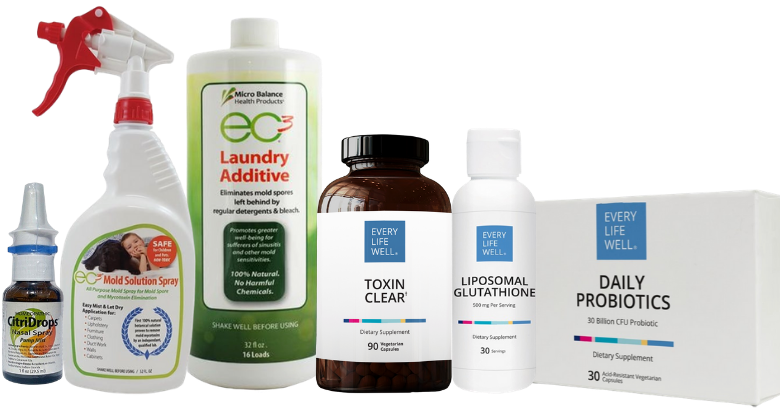Folate Vs. Folic Acid – The Importance of Methylation During Pregnancy
You likely know about the importance of folate during pregnancy.
It’s the nutrient discussed the most in terms of women’s health, both in conventional and functional medicine circles. But is all folate created equal?
What’s the difference between folate, folic acid, and methylfolate?
If you want to get pregnant, do you need to supplement with folate, and when should you start?
Today’s article will answer these questions and more!
Keep reading to learn more about:
- What is folate and why it’s critical for pregnancy
- The difference between folate and folic acid
- Where folic acid hides
- How to meet your folate needs and optimize methylation with food and supplements
What Is Folate? Why Is It Important During Pregnancy?
Folate is vitamin B9, an essential water-soluble nutrient you must obtain regularly in the diet. Folate refers to the natural group of folates found in food in their active form the body can readily use.
Folate is required by every cell of the body for a process called methylation involved in genetic expression, detoxification, and development. Having enough folate, and good methylation status is critical for reproductive health and fetal development.
Read more about the methylation process in the article Managing Your Genes – Understanding Methylation.
Folate requirements increase during pregnancy to support the growth and development of the baby. But it is important to achieve optimal folate status before pregnancy to prevent neural tube defects and other congenital abnormalities.
An estimated 50% of people have genetic changes, called single nucleotide polymorphisms or SNPs, in the gene that codes for the key methylation enzyme: MTHFR.
These genetic changes often correlate with decreased methylation status and an increased need for folate.
One important medical test is testing for these genetic markers. Another is a blood test for homocysteine levels.
Elevated homocysteine suggests decreased methylation status and an increased need for folate and other methylation supportive nutrients such as vitamin B12, vitamin B6, and choline.
MTHFR genetic mutations correlate with increased homocysteine and subsequent increased risk for miscarriage.
Elevated homocysteine, independent of MTHFR status, is associated with recurrent miscarriage. Even moderate elevations increase risk.
Folate deficiency (and its impact on methylation) is associated with:
- Neural tube defects
- Recurrent pregnancy loss
- Congenital abnormalities
- Congenital heart defects
- Neurodevelopment disorders
- Preterm birth
- Low birth weight
In adults, we see more connections with heart disease, cancer, autoimmunity, and Alzheimer’s disease.
But these pregnancy risks are often mitigated by getting enough folate before pregnancy, and throughout pregnancy, from food and the correct form of folate in supplements.
Supplemental folate, in the active 5-methyltetrahydrofolate (or methyl folate) form, is shown to raise folate levels and protect against neural tube defects, miscarriage, and other complications.
Folic Acid Is Not Folate
Folic acid is still the most widely available form of vitamin B9, but it differs from folate.
Folic acid is synthetic and inexpensive, but it is not chemically the same as the natural folates found in food. It is also not active.
The body needs to transform folic acid into methyl folate to be used by cells.
For those who have MTHFR mutations or other challenges in activating folic acid, folic acid may remain unmetabolized and accumulate in the blood.
Folic acid use may induce “pseudomethylenetetrahydrofolate syndrome,” where blood levels of folic acid look normal or high, but there is a functional deficiency of active folate available to cells. It may result in higher serum levels of homocysteine.
Unmetabolized folic acid is found in the cord blood of newborns where the mother supplements with folic acid and in formula-fed infants since formula might contain folic acid instead of folate.
In addition, the use of folic acid can mask a vitamin B12 deficiency. Vitamin B12 is another critical methylation nutrient needed for fertility, pregnancy, and fetal development.
Using supplemental folate has a significant advantage over folic acid.
It can replete folate levels without the risks folic acid build up or masking vitamin B12 deficiency. It also minimizes the risks associated with low folate levels.
Where Is Folic Acid Hiding?
You may be getting supplemental dosages of folic acid and not even know it!
Folic acid is found in many processed, refined, and fortified foods, including:
- Bread, pasta, and baked goods made with white “enriched” flour
- Fortified protein powders, cereals, and bars
- Multivitamins, B complexes, and prenatal vitamins
- Energy drinks and supplements
- Infant formula and processed foods marketed to kids
Be sure to read labels to avoid this potentially harmful ingredient.
How To Increase Folate, Naturally
While avoiding folic acid is one piece of the puzzle to support optimal methylation, the other is to increase folate levels in the body.
Ideally, a couple will focus on preconception nutrition for at least three months prior to pregnancy.
Read more about how to optimize your diet for both partners here.
Adults need to get 400 mcg of DFE (dietary folate equivalents) per day from their diet. For reference, 1 mcg of folate equals 1 DFE.
Pregnant women need at least 600 mcg DFE per day and lactating women need at least 500 mcg.
You’ll find most prenatal vitamins contain around 800 mcg DFE and it’s safe to take even more, depending on individual needs and tolerance.
Here are the important steps to take to meet your daily folate needs:
1. Get tested. As part of preconception planning, ask your provider to test you for MTHFR genetic mutations and obtain a blood level of homocysteine. This will help you determine if you need more folate and other methylation support to optimize fertility, pregnancy, and overall health.
2. Include high folate foods in the diet. These Paleo options are at the top of the list:
- Dark leafy green veggies – spinach, collards, kale, arugula
- Liver – beef, bison, or chicken liver
- Seaweed
- Beets
- Asparagus
- Avocado
- Oranges
- Eggs
Although not Paleo, beans and lentils are a top whole food source of dietary folate.
3. Take a daily prenatal vitamin that contains folate instead of folic acid.
On the label, you’ll see folate listed as:
- 5-methyltetrahydrofolate
- 5-MTHF
- L-methylfolate
- Calcium folinate or folinic acid (this is not the same as folic acid and a good choice for people who are sensitive to methylated folate)
Every Baby Well Prenatal Pure Packs are an excellent option that includes complete prenatal nutrition from vitamins, minerals, essential fats, and phytonutrients.
4. Consider other methylation support. Folate isn’t the only nutrient required for healthy methylation and to manage homocysteine levels. Instead of giving more folate, consider a well-rounded and personalized approach.
These are other important nutrients:
- Vitamin B12
- Vitamin B2
- Vitamin B3
- Methionine and cysteine (amino acids)
- Zinc, magnesium, potassium (minerals)
- Choline
A well-rounded Paleo diet along with a complete prenatal or multivitamin is foundational.
Certain people may need additional supplemental support as well.
It is beneficial to work with a knowledgeable Functional Medicine provider through all stages of life and especially during the preconception period.
Now that you are clear about why you need folate, and not folic acid, for methylation and pregnancy support, what is one step that you can take this week?
Perhaps you want to go through your pantry and read labels for folic acid, check your supplements to make sure they contain active folate, or maybe you’ll add a few high-folate foods to your weekly shopping list.
With just a little education and awareness, you can make measurable changes in your health, fertility, and for your future children.
References
- https://lpi.oregonstate.edu/mic/vitamins/folate
- https://pubmed.ncbi.nlm.nih.gov/32868164/
- https://pubmed.ncbi.nlm.nih.gov/12039122/
- https://pubmed.ncbi.nlm.nih.gov/31962182/
- https://pubmed.ncbi.nlm.nih.gov/27130656/
- https://pubmed.ncbi.nlm.nih.gov/23482308/
- https://www.ncbi.nlm.nih.gov/pmc/articles/PMC6537060/
- https://pubmed.ncbi.nlm.nih.gov/16277775/
- https://pubmed.ncbi.nlm.nih.gov/29511242/
- https://www.ncbi.nlm.nih.gov/pmc/articles/PMC6837928/













